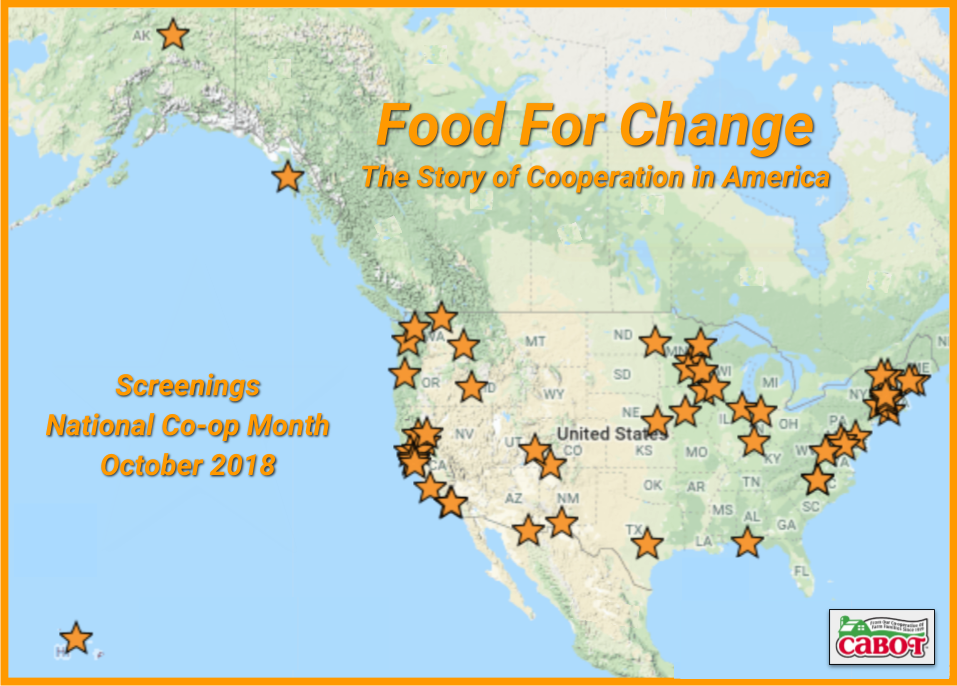
- This event has passed.
Ft. Collins, CO: Fort Collins Food Co-operative
October 26, 2016 @ 6:00 pm - 8:00 pm
FreeFort Collins Food Co-operative
The Fort Collins Food Co-Operative is your naturally local grocer’s market. The Coop seeks to serve all those in our community who want to support their local circle of profit through buying locally sourced grocery items. Anyone can shop at the Coop, the member-owner structure simply exists to reinforce a local circle of profit by sharing the profits of the Fort Collins Food Co-Operative amongst its member-owners.
The Coop is a place where people can reconnect with their food. This is a place built on understanding what we are consuming and why. These ideas grew out of a buying club started by CSU students and community members in the early 1970’s.
Our staff, our business plan and our marketing strategies have evolved over the years, but our core values have remained the same since day one. It is still our goal to offer the best possible selection of locally grown and produced goods, as well as organic products.
The ideas of the Fort Collins Food Co-Operative all come from the people who started the buying club in the 1970’s, the community, volunteers, the people who shop once to those who are in every day, farmers and producers, local businesses and restaurants who buy from us, and from the greater need to create a more positive connection between people and their local community. These ideas were not surfaced by one person or individual; they came from a long history of people seeking out a space where they could together make a difference in their health, local economy and community. The Fort Collins Food Co-Operative and its members hope to be a part of a larger, long term movement to promote healthy living through a stronger connection to a local economy.
Rocky Mountain Farmers’ Union
At the turn of the century, facing the growth of corporate agribusiness and increasing monopolization of agricultural markets, family farmers and ranchers recognized cooperatives as an effective tool to help them remain economically viable.
During the decades following the Civil War, corporate interests established a ruthless control over large segments of American commerce: banking interests, the railroads. the meat trust, the sugar trust, giant urban life insurance companies. Competing with these giants was vital to family farm survival.
Many corporations had created buying and selling combines, with arms-length transactions among their own holdings, to eliminate competition, corner and depress markets for raw materials, and maintain high prices for manufactured and processed products.
President Theodore Roosevelt described this era in his autobiography: “A riot for individualistic freedom for the individual… turned out in practice to mean perfect freedom for the strong to wrong the weak.” Laws to control the power of the giant corporations were archaic and impotent to help the agricultural producer.
Farmers Turn to Cooperatives
In this historical setting, Farmers Union leaders began creating strong working relationships. That cooperative spirit remains a cornerstone of Rocky Mountain Farmers Union today.
In cooperatives the producers found a form of competitive enterprise solidly rooted in democratic control by the membership. Cooperatives allowed independent farms gain equity in the market place; they enhanced farm bargaining power with the giants of industry; and they helped reduce exploitation of farm producers and prevent price gouging suffered by both producers and consumers.
Many cooperatives organized in Colorado between 1908 and 1960 and in Wyoming between 1944 and 1960 were small, limited by their early market potential. Even so, Farmers Union has built more cooperatives in the Rocky Mountain region than any other organization.
In these smaller cooperatives, democratic control by the membership was of major educational importance, because these ventures often represented the first business experience ever for the cooperating farmers, ranchers, and consumers. Members developed confidence and business skills necessary to competitive survival. Some cooperatives did not survive, but those that did were stronger with passing years.
These cooperatives, born of the Farmers Union, were nurtured financially and with educational meetings designed to attract new members, camp programs to teach both young and old the principles of successful cooperative enterprise, and other support from the RMFU in times of crisis.
Cooperatives Opposed
Soon after World War I, business opponents of farm cooperatives in Colorado began attempting to scuttle farmers’ efforts to create cooperatives and sustain buying and marketing associations. It was not unusual for a large corporation to wage price wars against a cooperative, underwriting losses sustained by their retail business outlets in order to ‘break’ the fledgling cooperative.
After World War II, these corporate interests contended that patronage savings should be considered taxable income, for example. This tactic continued until February 1951, when a push in the Colorado legislature for a tax on retained patronage savings was soundly defeated.
Unfaltering Support
The Rocky Mountain Farmers Union has never faltered in its support of farm cooperatives, from its early lobbying for passage of the Capper-Volstead Act to its defeat of numerous harmful cooperative tax laws. The RMFU Cooperative Development Center was created to organize RMFU’s efforts in this vital undertaking.

Small screen? Open in Google Maps
Screenings of Food for Change — National Co-op Month, October 2018
Not on the calendar? Email us to host a screening.

